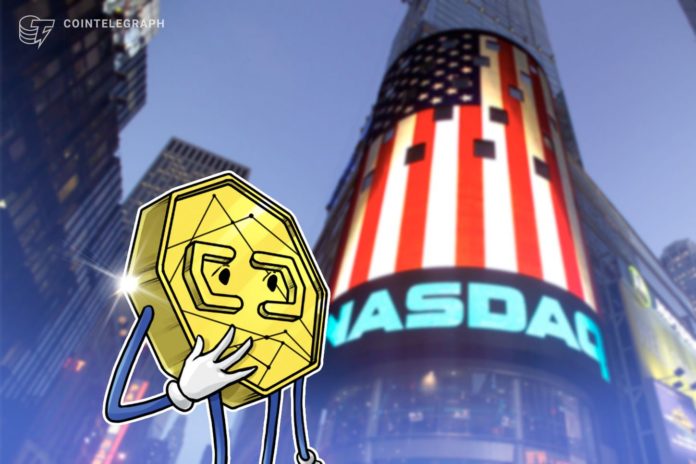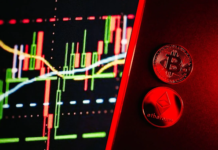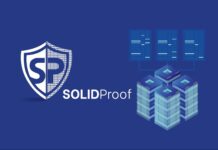[ad_1]
Microsoft, IBM, Nasdaq and a number of other technology and financial organizations from around the world recently formed the InterWork Alliance, or IWA. The alliance, which currently consists of 36 members, serves as a non-profit organization dedicated to creating global standards needed to drive tokenized ecosystems.
Microsoft’s principal architect and the IWA chairman, Marley Gray, told Cointelegraph that any expression of value in any vertical or use case can be rendered as a token. Cryptocurrencies, for example, are one of the many types of tokens that can be exchanged across multiple parties, creating a tokenized ecosystem.
Yet as tokenized environments expand outside of the cryptocurrency realm and into the business world, a disconnect between understanding businesses requirements and technology needs has emerged. As a result, the adoption of tokenization is being hampered. Gray elaborated on this, saying:
“In the future, users will be able to buy, sell, and exchange everything using tokens from climate change-based carbon accounting and markets, to plane tickets, to real estate. Today that future can’t happen.”
According to Gray, the challenge facing tokenization adoption relates to the notion that organizations want to produce business processes that can be quickly passed off to coders for implementation on platforms leveraged by their customers. However, it’s problematic for companies to focus on solving technology challenges before recognizing business requirements, Gray explained:
“Without a standardized set of common terms, definitions and business level specifications, developers have to interpret inconsistent business requirements and translate them to write code for every blockchain platform and each token standard for a token-based business use case to work. This complexity makes wide-scale adoption difficult.”
In order to solve this challenge, the IWA will seek to examine ways to simplify tokenization, providing knowledge on how contracts interact with tokens as well as a common data schema for analytics to improve on the underlying ecosystem over time.
For instance, unlike many companies that push specific technology solutions on businesses looking to implement blockchain or distributed ledger systems, the IWA claims it will work with customers to understand their core business processes first before committing to a technology platform. Based on customer use cases, the IWA will then develop a set of global technology-neutral standards for businesses seeking to deploy tokenized ecosystems.
According to Gray, three different frameworks are already being developed, with the first one being the Token Taxonomy Framework, which provides a common language and toolset to enable multiple parties to agree on the definition of a token and how its value can be exchanged or used.
Secondly, the InterWork Framework, which allows businesses to compose multi-party contracts from clauses that directly correlate to the token standards. This will enable communication protocols to be defined and connected to framework components, regardless of the eventual technology deployment.
Finally, there is the Analytics Framework, which enables organizations to derive business value from analysis of multi-party contracts. This serves as a shared data schema for AI services and market-driven reporting. Gray noted:
“As customers move from multi-party transactions towards multi-party contracts, they find they have a lot of ‘linked’ data generated by these systems — and it would be really valuable if that data could be shared with contractual partners to perform some multi-party AI over it.”
Why interworking is important for tokenization
InterWork Alliance president Ron Resnick further told Cointelegraph that the IWA ultimately aims to unify an ecosystem of businesses seeking tokenization models. Yet in order for this to occur, interworking between different businesses — even those outside of the blockchain realm — must be achieved. He said:
“The IWA is building a tooling environment that allows any company, regardless of their technology, to examine best practices for implementing distributed ledger technology. We let these companies choose from multiple vendors. This is why we are called the InterWork Alliance.”
By standardizing how tokens and values are defined through models and contracts, the IWA will eventually foster the “interworking” needed to drive widespread adoption of asset tokenization. The IWA is specifically focused on sustainability and trade finance use cases, with discovering a global standard for tokenizing carbon credits being one of the alliance’s current priorities.
Jason Pancis, co-founder and chief operating officer of Envision Blockchain and an IWA member, told Cointelegraph that he is working with the IWA on “The Carbon Emissions Token”, which is a draft token specification template within the IWA’s Token Taxonomy Framework.
According to Pancis, the template serves as a first step in establishing a standard of tokenized carbon credits for individuals and businesses to leverage all around the world:
“The key takeaway is that this is a global initiative requiring all businesses and governments around the world to cooperate and interoperate, regardless of the state machine being used, in order to properly account for all emissions as it relates to individual climate pledges.”
Moreover, Resnick explained that business working groups will be established in late June, allowing IWA members the opportunity to discuss new tokenization use cases. He explained that any member can nominate a use case to be further explored, but that working groups will only remain in place for the time it takes to drive innovation in that area.
Establishing trust to move forward
Although the IWA is focused primarily on establishing global frameworks for tokenization, Resnick mentioned that trust is a major requirement to drive adoption. He mentioned that the IWA must gain the trust of regulators and other businesses that don’t know much about how tokenization can make their companies more efficient.
In order to provide this level of trust, Resnick explained that the IWA is working with the independent auditor, Dekra. He noted that the alliance will eventually have a certification program to validate formulas and definitions of interworking tied to tokens and analytics, all of which will be validated by Dekra.
Related: The Big Four Are Gearing Up to Become Crypto and Blockchain Auditors
Unlike the Big Four firms that also specialize in blockchain and crypto best practices, Resnick noted that the organization chose to partner with Dekra because it is not an accounting auditor. He said, “We are focused on the performance of market requirements, not accounting audits.”
Brian Behlendorf, executive director of Hyperledger and also an IWA member, further noted that the biggest challenge for the alliance moving forward will be to find financial self-sufficiency while making a positive public technical impact. Although Resnick — who is the former director of the Enterprise Ethereum Alliance Foundation — is familiar with such a challenge, Behlendorf noted that it will still be a balancing act.
Behlendorf also commented on the importance of articulating to the world that tokens aren’t just about cryptocurrencies, but can apply to anything represented on a blockchain. He added:
“Tokens can be defined as shares in a company, bars of gold, fiat currencies or titles to real property. Basically, anything that someone would want to trade from one person to another at scale. So, it’s a very broad space, and standards will help, but there will also be a lot of market education to do moving forward.”
[ad_2]










